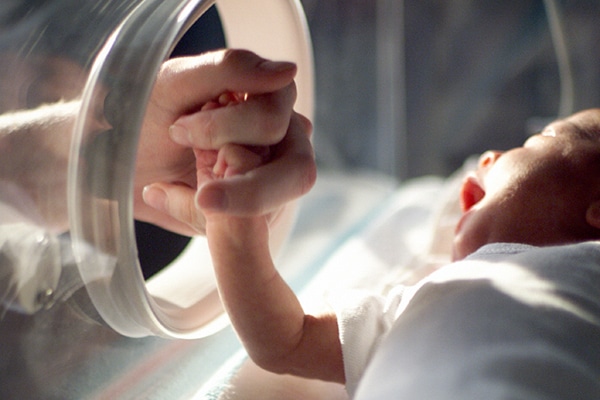
Throughout late fall, winter and early spring, the NICU (neonatal intensive care unit) in the hospital is often limited to parents and grandparents. Brothers and sisters may be eager to meet their new best friend, but this time of year is RSV season, which can be life threatening to our tiniest patients.
Respiratory Syncytial Virus, RSV, is a common viral infection that presents similarly to the common cold or flu. Adults may show little to no symptoms or may mistake it for allergies. It is very easy to pass between people and can live on surfaces, including your hands, for several hours. The virus is so common, in fact, that most children are infected by age two, and can be re-infected.
Even though RSV can be relatively harmless to a healthy adult, it can be detrimental and life-threatening to infants in the NICU. The tiniest infants are most at risk due to their extreme prematurity, immature immune system and possible comorbidities such as chronic lung disease.
RSV in infants is usually a lower respiratory tract infection, such as bronchiolitis and/or pneumonia. Infants exposed to RSV typically show the normal signs and symptoms of a cold such as fever, cough, congestion, runny nose and malaise (general feeling of discomfort/illness).
Infants with RSV frequently must work harder to breathe, will breathe rapidly or have periods where they stop breathing. If severe enough, the infant may require breathing assistance through endotracheal intubation and mechanical ventilation.
So while RSV is not big deal to most adults, it can mean life or death for our babies in the NICU. We know you want to visit and love on your little one, but if you or someone in your home may be sick, please refrain from visiting the NICU.
How can you prevent RSV? Wash your hands and clean all surfaces that you touch.
Think your child may have RSV? Look for signs like runny or stuffy nose, fever, cough, wheezing, rapid breathing, or difficulty breathing and call your child’s primary care provider.









